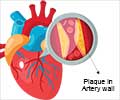Higher triglycerides linked to slower cognitive decline in various aspects, incl. global function, memory, & more over time.

Association Between Triglycerides and Risk of Dementia in Community-Dwelling Older Adults
Go to source) Triglycerides are fatty acids and are the most common type of fat in the blood. Triglycerides contribute up to 95% of dietary fats, which are the main energy source of the brain.
Triglyceride Levels as Indicators of Better Cognitive Health
“Higher triglyceride levels may be reflective of better overall health and lifestyle behaviors that would protect against dementia,” said study author Zhen Zhou, PhD, of Monash University in Melbourne, Australia.‘Triglyceride levels could be a key predictor for assessing dementia risk and cognitive decline among older people. #dementia #triglycerides #fattyacids’





Researchers used health care data to identify 18,294 people in one cohort with an average age of 75 who did not have a prior diagnosis of Alzheimers disease or dementia. Participants were followed for an average of six years. During that time, 823 people developed dementia.
Researchers looked at participants’ measurements of total cholesterol, triglycerides, low-density lipoprotein cholesterol (LDL) and high-density lipoprotein cholesterol (HDL) each year of the study.
Then researchers divided participants into four groups based on fasting triglyceride levels. Of the total group, average triglycerides were 106 milligrams per deciliter (mg/dL). For adults, a normal or healthy triglyceride level is below 150 mg/dL.
After adjusting for variables that could affect risk of dementia including education and cholesterol-lowering treatments, researchers found every doubling of triglyceride levels was associated with an 18% lower risk of developing dementia.
Triglyceride Levels and Dementia Risk: Fresh Insights
The lowest triglyceride group had levels of less than 62 mg/dL. The second group had levels of 63 to 106 mg/dL. Compared to the lowest group, the second group was 15% less likely to develop dementia. The third group had levels of 107 to 186 mg/dL. Compared to the lowest group, they were 24% less likely to develop dementia. The fourth group had levels of 187 mg/dL or higher. Compared to the lowest group, they were 36% less likely to develop dementia.Advertisement
The researchers also validated their results in another dataset comprised of 68,200 older people from the U.K. Among them, 2,778 people developed dementia over an average time of 12 years. They observed a consistent result which shows a 17% decreased risk of dementia with every doubling of triglycerides levels.
Advertisement
A limitation of the study was researchers looked only at people 65 and older who had no cognitive issues initially, so the findings are not generalizable to other populations.
The study was supported by the Royal Australian College of General Practitioners and HCF Research Foundation.
Reference:
- Association Between Triglycerides and Risk of Dementia in Community-Dwelling Older Adults - (https://n.neurology.org/content/neurology/early/2023/10/25/WNL.0000000000207923.full.pdf)















